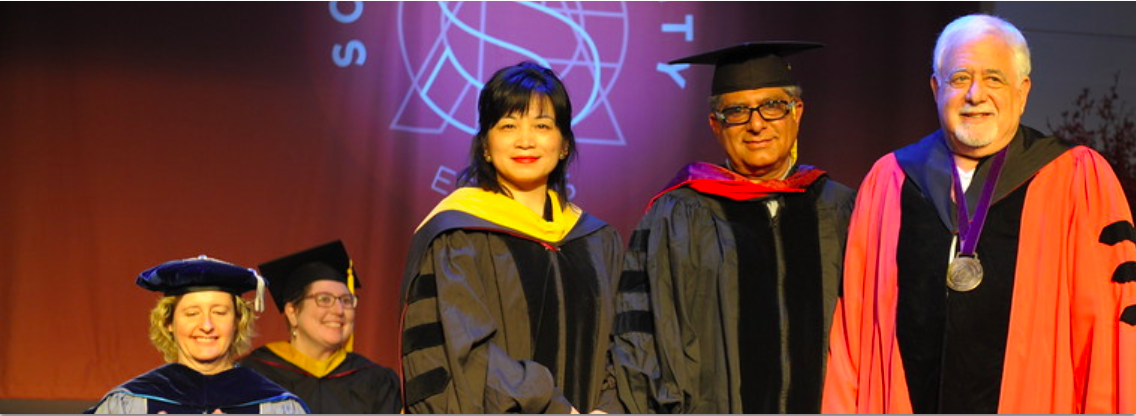





Sofia University has been the leader in the field of Transpersonal Psychology for over 40 years. The university is located in Palo Alto, California - the heart of Silicon Valley. The department of Transpersonal Psychology and Consciousness Studies is Co-Directed by Drs. Deepak Chopra and Jeffery A. Martin. It is the leading academic program that explores so called persistent higher-levels of consciousness from a scientific standpoint. In the program we refer to this as persistent transpersonal consciousness.
A category of human experience has been reported in the writings of philosophers and mystics since antiquity (Hanson, 1991; Stace, 1960). It goes by many names, including: nondual awareness, enlightenment, mystical experience, peak experience, transcendental experience, the peace that passeth understanding, unity consciousness, union with God, and so forth (Levin & Steele, 2005; MacDonald, 2000; Thomas & Cooper, 1980). We refer to these types of experiences collectively as persistent transpersonal consciousness. They are often reported in spiritual and religious individuals; however, atheists and agnostics also report them (Newberg, d’Aquili, & Rause, 2001; Newberg & Waldman, 2006, 2009).
Virtually all information about these experiences comes from highly variable self-report data (McGinn, 1991; Stace, 1960). These types of experiences have traditionally been regarded as very difficult to examine scientifically, however the modern number and range of research tools available is making it increasingly possible to rigorously examine the psychological claims made by these individuals. The department leads a 10+ year global project that has been working to do just that, and has made many breakthroughs. Our work attempts to determine testable claims and collect detailed first person data in a way that side-steps the religious, cultural, and other contextual ways in which persistent transpersonal consciousness is often described.
Hanson, B. K. (1991). Mystical realism: Epistemology and nondual awareness. Dissertation Abstracts International, 52(6), 2177B. (UMI No. 9135373)
Levin, J., & Steele, L. (2005). The transcendent experience: Conceptual, theoretical, and epidemiologic perspectives. EXPLORE, 1(2), 89-101.
MacDonald, D. A. (2000). Spirituality: Description, measurement, and relation to the five factor model of personality. Journal of Personality, 68, 153-196.
McGinn, C. (1991). The problem of consciousness. Oxford: Blackwell Publishers.
Newberg, A., D‘Aquill, E., & Rause, V. (2001). Why God won’t go away: Brain science and the biology of belief. New York: Ballantine Books
Newberg, A. B., & Waldman, M. R. (2006). Why we believe what we believe: Uncovering our biological need for meaning, spirituality, and truth. New York: Free Press.
Stace, W. (1960). Mysticism and philosophy. Philadelphia: Lippincott.
Thomas, L. E., & Cooper, P. E. (1980). Incidence and psychological correlates of intense spiritual experiences. Journal of Transpersonal Psychology, 12, 75-85